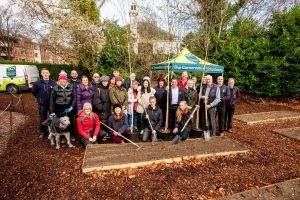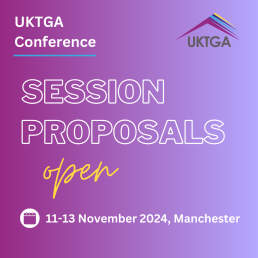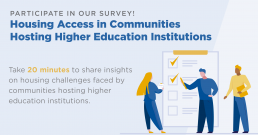UKTGA 2024 Conference - session proposals now open
We hope that you're looking forward to this year's UKTGA conference, which will be held 11-13 November in Manchester. The theme for this year will be Building Bridges: Innovating Together for Sustainable and Inclusive Communities.
The UKTGA 2024 Conference invites proposals for presentations, workshops, TED talks and panel discussions that explore innovative strategies and initiatives to strengthen relationships between universities and their surrounding communities. The conference will highlight collaborative efforts aimed at enhancing relationships and addressing challenges through innovation, cultural exchange, and sustainable practices.
You can find full details of the Conference Tracks, submission guidelines and the session proposal form on the Conference webpage.
Proposal deadline: 1 August 2024
Notification of acceptance: 1 September 2024
Please send any queries about the conference to our new UKTGA email address - info@uktga.org, and we look forward to seeing your proposals for conference sessions.
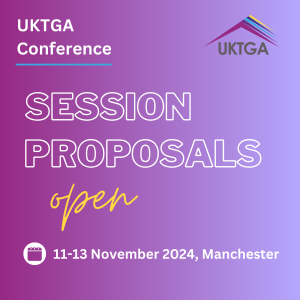
Save the date: UKTGA conference - 11-13 November 2024, Manchester
We’re excited to share with you that 2024 sees the return of an in-person UK Town and Gown Association conference!
Please add the 11-13 November 2024 into your diary and look out for more details, coming soon. You can register your interest in attending the conference through this form. We hope you can join us in Manchester later this year!
Survey on Housing Access in Higher Education Communities
Communities across the UK, and internationally, are struggling with housing uncertainty and affordability; those hosting higher education institutions are no exception. To better understand the needs and challenges of stakeholders at higher education institutions and in their host communities, the International Town-Gown Association and the UKTGA have launched a survey to gather input from institutional leaders and local leaders about town-gown relationships in the context of housing.
The data will be used to identify key variables in achieving affordable and attainable housing and highlight effective approaches, strategies, and tools for resolving institutional and community housing needs. We want to hear from you about the housing issues facing your community.
The survey should take less than 20 minutes to complete and we want to ensure that the UK is well represented in the data collection, so please set aside some time to complete it. To take the survey, visit: https://dlrgroup.co1.qualtrics.com/jfe/form/SV_eKIdRKNkCv1oKQm.
UKTGA 2023 Annual Conference - Strengthening Town and Gown Relationships: Lessons from the United Kingdom
Last month the UKTGA hosted their highly anticipated 2023 annual conference, which proved to be a captivating showcase featuring a diverse lineup of exceptional speakers, all centered around the dynamic relationship between town and gown agencies. This full-day conference provided a platform for insightful discussions, with a particular focus on fostering effective partnerships between local authorities and university cities. The overarching theme of this year's conference centered on the essential task of strengthening town-gown relationships, drawing upon valuable lessons from various regions across the United Kingdom. Among the compelling topics explored, speakers offered invaluable insights into their successful night safety initiatives and dedicated services addressing noise and antisocial behavior. The event delved into the intricacies of neighbourhood management frameworks and the importance of considering broader planning considerations in student accommodation.
Year after year, the UKTGA takes immense pride in bringing together individuals operating at the intersection of off-campus student affairs. Guided by a dedicated UKTGA Steering Group, Chair Cooper Healey expressed enthusiasm for the event, stating, "This was an exceptional opportunity to shed light on the pressing issues surrounding town and gown relations and to delve into leading practice. We recognise that these roles are often carried out by individuals working independently, making our network and events all the more valuable in fostering a sense of community among practitioners."
Established in 2014, the UKTGA has provided a framework for shaping conversations in this arena for the past ten years. There is much more to come! Building on the continued success of these discussions, the UKTGA is currently finalizing plans for its 2024 programme of learning and networking events. More information to follow!
UKTGA Conference - 29 November 2023
The UKTGA annual conference returns on Wednesday 29 November! We are delighted to have a great lineup for the day, with a range of interactive online sessions, led by local authority representatives, academics, town-gown practitioners, and many others. The full agenda (UKTGA Conference Agenda - November 2023) for the conference includes sessions from the Lord Mayor of Leeds, Cllr Al Garthwaite; Simon Merrywest, Director for the Student Experience at The University of Manchester; and Sharon Massingham, Business Crime Partnership Manager and Nightsafe Manager at Thames Valley Police.
The cost for the full-day conference is just £50.00 (including VAT). Registrations can be made by contacting manchesterstudenthomes@manchester.ac.uk, or calling Manchester Student Homes on 0161 275 7680.

Save The Date Virtual Conference 2022 - 'Off Campus: In Touch'
We are delighted to announce the return of the UKTGA conference – more details to follow soon – please SAVE THE DATE and if there are any immediate queries please get in touch.
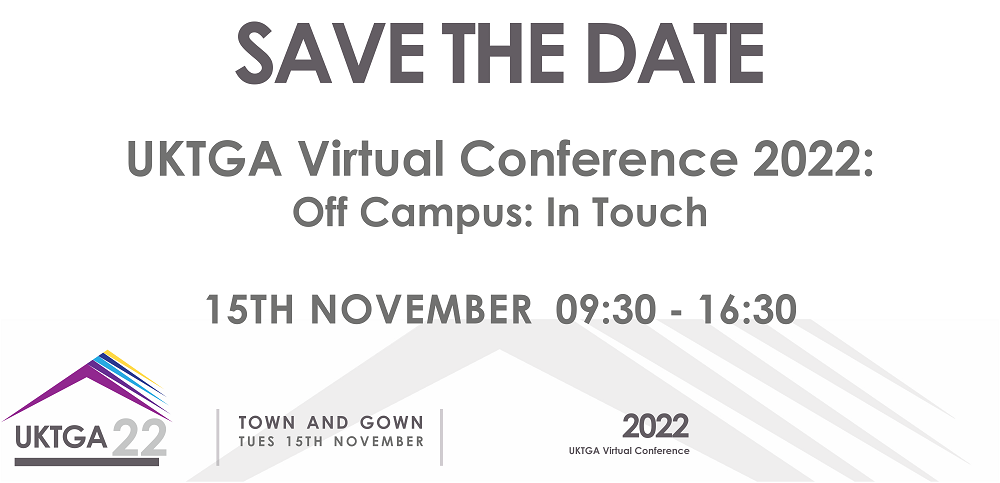
Membership Spotlight: Tatjana Walker "Balancing a busy career, family and MBA course demands"
We hear from Tatjana Walker, UKTGA Steering Group Member, about her academic pursuits, and how this has further strengthened the tools she uses to deliver her role to an A* standard.

When I originally started to look into MBA programmes worldwide it quickly became clear that there were many choices and options available. However, the need to ensure I was able to balance my busy career, as an Area Manager working for the largest UK Purpose Built Student Accommodation (PBSA) provider, my family life and the requirements of the course had to be met. This is where University of Bradford’s School of Management and their Distance Learning MBA course have come to the fore. The fact that the University of Bradford MBA course also has the triple-crown accreditation played a significant part in my decision to enrol onto this specific course too.
As a mother, wife and someone working full-time in a very demanding role, having the flexibility to tailor my learning and study time has enabled me to have a good work / life / study balance.
Distance learning has provided me with the flexibility to work through the modules at my own pace and I must say that the support received, from the lecturers through to the administration team, has been professional and consistent. Moreover, I have found all of the modules relevant and engaging, which has in turn enabled me to further build connections with other fellow students and professionals across many industries and countries around the world.
As a senior manager within a business the course has reinforced my current knowledge, whilst expanding my horizons and challenging my ways of working. The ability to apply my learnings from each module has allowed me to gain better insight and propose new ideas within the business.
Having the additional skills and knowledge to navigate through the challenging waters of business management, can only support me in my future endeavours whilst raising my personal profile to a new heights. The Distance Learning MBA offers both flexibility and great value for money, whilst providing you with the ability to further your career.
Furthermore and in line with my current professional level, all modules have been and are relevant to my current and any future roles I may consider and would hold:
- Accounting and economics for decision making (core module)
- Digital marketing, branding and strategy (core module)
- Leadership for transformational change (core module)
- Competitiveness through technology and innovation (core module)
- Corporate finance and crowdfunding (elective module)
- International business strategy (elective module)
- Entrepreneurship and creativity (elective module)
- Management consulting (elective module)
My journey through this MBA course has been fantastic and I would happily recommend it to anyone looking to further their business management knowledge and expertise.
For businesses, developing high – potential employees and managers internally is valuable and attractive to new hires. Moreover, I believe a combination of company expertise and the rigor of an MBA program is the perfect formula to develop internal talent.
Throughout the program any applicant would be able to develop new tools to drive efficiency and growth within own teams and the company. Not only would they have a deeper understanding of their own side of the business – applying that expertise in normal day-to-day responsibilities, they would have a stronger cross-functional understanding that would help them find solutions to a broader set of company challenges.
My commitment to my current employer remains steadfast, and I feel that University of Bradford School of Management’s dynamic learning environment has allowed me to grow as a professional while at the same time adding immediate value to my employers.
Tatjana is Area Manager for the Unite Group.
Membership Spotlight! Vicki Fry Social Impact Manager, UNITE Students
In the first of our UKTGA Membership Spotlight series, we hear from Vicki Fry, Social Impact Manager about her role in strengthening communities, her global experience working with students, and the importance of 'listening'.
Click here to view: UKTGA Membership Spotlight- Meet Vicki
https://youtu.be/zSOYJp2jfMM
20th October 2021
University of St Andrews Ranked #1 in the United Kingdom- The Times and Sunday Time Good University Guide 2021!
The UKTGA hear from Lesley Caldwell, Community Engagement and Social Responsibility Officer at the University of St Andrews (and UKTGA Scotland Regional Representative) about this fantastic achievement:
"We are delighted that for the first time in thirty years, the University of St Andrews has been ranked number one in the United Kingdom in The Times and Sunday Time Good University Guide 2021. No British ranking has ever placed any other university other than Oxbridge at number one. It is an exceptionally special moment for our staff, students, alumni, and the local community that the University has been recognised in this way following the difficult 18 months our community has faced.
The University has regularly ranked highly across league tables for student satisfaction, and within my role as Community Engagement and Social Responsibility Officer, I must attribute this in part to the welcoming and ultimately supportive local community within which our University sits. Over the years the town and gown relationship has thrived, and our students’ have increasingly become an integral part of the makeup of the town. The Can Do attitude of our students, with the support of our staff, has allowed life to continue in a safe and supportive environment and has ensured that as a University, we have been able to respond to the needs of the local community during the pandemic.
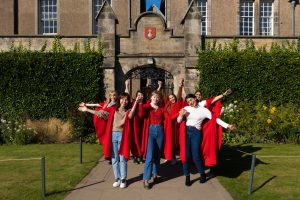
Our students are passionate about St Andrews, their learning and academic journey, but also life beyond the academic; from traditions through to sports, to volunteering, and fundraising. Their enjoyment in regards to being part of this wider community is one of the most important factors that make attending the University of St Andrews so special.
On Friday 17 September 2021, the town bells rang out at noon to celebrate this achievement. This success means a lot to us as a University but also as a town".
The UKTGA would like to congratulate St Andrews on this amazing achievement!
How, and why, institutions should collaborate with their communities?
Collaborative relationships between colleges or universities and their communities can contribute to an improved quality of life for everyone involved. From economic growth and development to attracting diverse talent to addressing inequalities, town-gown relations can enhance all aspects of a community.
Caitlin Lukacs is the Manager of Editorial Content at the Council for Advancement and Support of Education. Caitlin spoke with Poppy at the UKTGA, Beth Bagwell, Executive Director of ITGA, and many others, about the importance of town gown collaborative efforts.
Click here for further information: September - October 2021 | CASE
